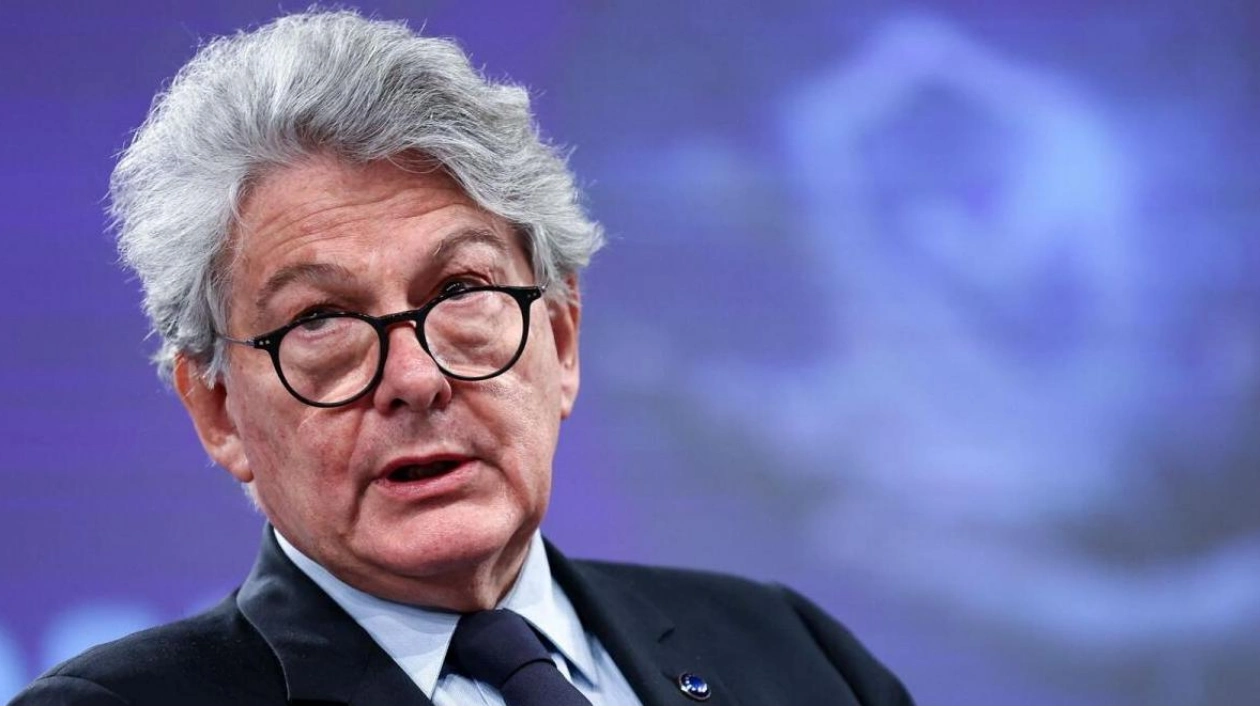France's influential European Union Commissioner, Thierry Breton, unexpectedly resigned on Monday, taking a swipe at the bloc's leader just as she was about to announce her new team. French President Emmanuel Macron has suggested Foreign Minister Stéphane Sejourne as Breton's successor. Breton, the bloc's internal market commissioner, announced his departure a day before Ursula von der Leyen was set to unveil her incoming team, alleging that the EU chief had attempted to oust him at the last moment. Macron had initially proposed Breton for France's position on the EU executive team, and his reappointment to a significant role—reflecting France's influence within the 27-nation bloc—was widely expected.
"In the final stages of negotiations on the composition of the future College, you asked France to withdraw my name," Breton wrote in a pointed letter to von der Leyen, which was posted on X. "Given these recent developments—further evidence of questionable governance—I have concluded that I can no longer fulfill my duties in the College," he added. "I am therefore resigning from my position as European Commissioner, effective immediately." A European Commission spokesperson confirmed that von der Leyen had accepted Breton's resignation and thanked him for his service during his tenure.
In Paris, Macron's office announced that the president was proposing Sejourne for an EU portfolio focused on "industrial and technological sovereignty and European competitiveness," emphasizing his previous experience leading the centrist Renew group in the European Parliament. It remains uncertain whether von der Leyen will be able to present her top team as planned on Tuesday—a timeline that has already been delayed once due to a dispute over gender parity.
Breton, whose tense relationship with von der Leyen was well-known during her first five years in office, claimed in his letter that her attempt to block his candidacy was made "for personal reasons that you have never discussed directly with me." He stated that she had offered, as a political trade-off, "an allegedly more influential portfolio for France." One of the most powerful figures in Brussels, Breton has been the bloc's internal market commissioner since 2019 and has taken a firm stance against abuses by the world's largest digital platforms—even clashing publicly with Elon Musk. His portfolio also included defense and space, overseeing a push for the defense industry and coordinating the production of Covid vaccines.
The former CEO of France Telecom was expected to be promoted to a commission vice-president role overseeing industrial growth. The 69-year-old was viewed by Paris as a crucial counterbalance to Berlin's influence at the heart of the EU. "Over the past five years, I have tirelessly worked to uphold and advance the common European good, above national and party interests," Breton wrote in his resignation announcement. "It has been an honor." The centrist Breton has been vocal in challenging von der Leyen—and caused a stir earlier this year by publicly questioning the level of support for her re-election within her center-right European People's Party.
Breton was also one of four commissioners who questioned her "transparency and impartiality" regarding the appointment of a political ally to a highly-paid position as a small and medium-sized enterprises envoy. "It shows her strength to remove 'powerful' Breton," commented one EU diplomat, speaking anonymously, suggesting that von der Leyen "comes out stronger from this." How the 27-member commission's portfolios are allocated will send a strong signal about the bloc's political direction and the relative influence of each member state—especially after the EU parliament elections in June, which saw gains by far-right parties. Von der Leyen has been urging member countries to nominate more women for the bloc's executive arm, after most—including France—ignored her request to provide a choice of male or female candidates.
The turmoil in Brussels coincides with France's anticipation of a new government formation by conservative Prime Minister Michel Barnier, who was appointed by Macron as a compromise choice after June's elections resulted in a hung parliament.






